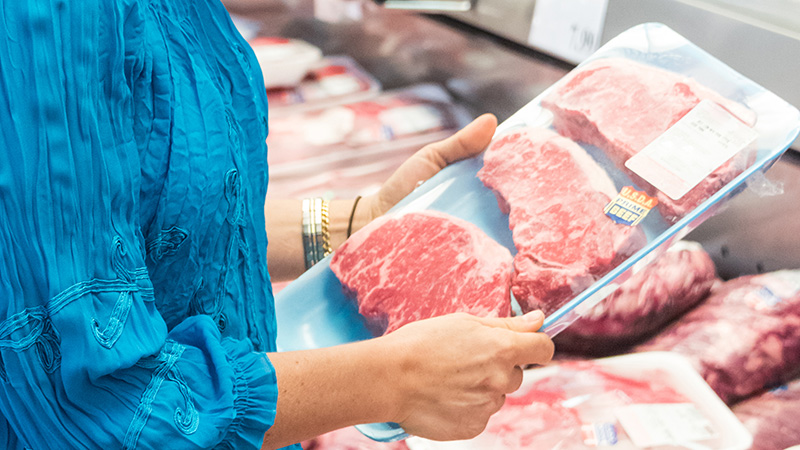USDA Moves To Dismiss Lawsuit To Require SARS-CoV-2 Labeling of Meat While Awarding $1 Million to Texas A&M To Determine Survival of Virus on Meat, Meat Packaging
WASHINGTON—The U.S. Department of Agriculture (USDA) has asked a federal court to reject a lawsuit filed Aug. 12 against the agency for ignoring concerns about the presence of SARS-CoV-2 on meat products and failing to require related disclosures on packaging. At the same time, the USDA recently awarded $1 million to Texas A&M to “determine the survival of SARS-CoV-2 on meat and packaging material during transportation and in retail conditions” and to “assess the transmission and survival of SARS-CoV-2 in beef, beef products, and beef product packaging…to reduce the risk of exposure to consumers.”
“The USDA said that there would be no public health benefit to the testing of meat products that we requested, but then, almost simultaneously, awarded one million dollars to a university to do just that,” explains Mark Kennedy, vice president of legal affairs for the Physicians Committee for Responsible Medicine, an organization with more than 12,000 doctor members. The Physicians Committee argues that this inconsistency is arbitrary and capricious in a court document to be filed Nov. 2.
Since the beginning of the COVID-19 pandemic, thousands of slaughterhouse workers have been infected with SARS-CoV-2. As of October 29, there were at least 48,669 infections and 249 deaths among U.S. meat plant workers, according to the Food & Environment Reporting Network.
Famed EPA whistleblower Cate Jenkins has also sounded the alarm about the potential transmission of SARS-CoV-2 via food. She told Energy & Environment News, “There is no reason to believe that food is safe and cannot transmit viruses, as the CDC and FDA are claiming.” On Oct. 26, Dr. Jenkins filed a complaint with the Inspector General, alleging misrepresentations about SARS-CoV-2 by both agencies, as well as the EPA.
“Meat plant workers who are asymptomatic may still be viral carriers,” Kennedy says. “Meat processing plants make for a unique combination of long shifts, shoulder-to-shoulder proximity, exertion leading to heavy respiration, cold stale air in which respiratory droplets travel farther, and a huge throughput of meat products that can come into contact with these droplets due to very high line speeds. More sick meat workers could, in turn, lead to more contaminated meat.”
The Physicians Committee’s legal action would compel USDA to require slaughterhouses to test meat and poultry for SARS-CoV-2 prior to making it available for sale and distribute to grocery stores notices that warn consumers of the potential presence of SARS-CoV-2 on meat and poultry products.
Although studies show that infectious viruses easily survive during refrigeration and freezing, meat companies do not routinely test the extent to which meat products are contaminated with the virus. Researchers have not specifically tested the temperature at which meat and poultry products would have to be heated to kill SARS-CoV-2.
To speak with Mark Kennedy, please contact Leslie Raabe at 202-527-7319.
Media Contact
Leslie Raabe
202-527-7319
lraabe[at]pcrm.org
Founded in 1985, the Physicians Committee for Responsible Medicine is a nonprofit organization that promotes preventive medicine, conducts clinical research, and encourages higher standards for ethics and effectiveness in education and research.






